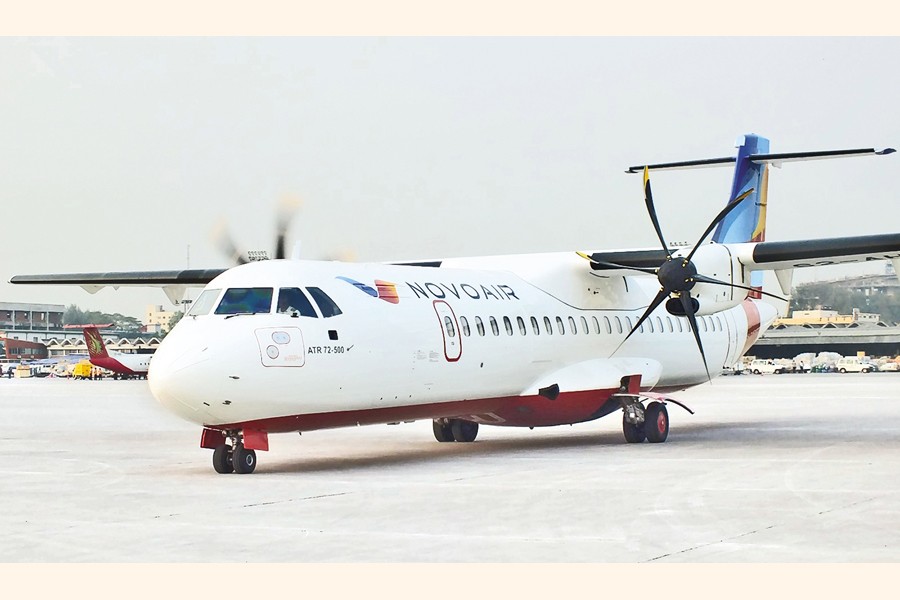

Lower operational expenses and streamlined regulations are two of the most critical factors that contribute to entrepreneurial growth, investment, and job creation. Recognising this, governments worldwide are seeking ways to reduce the cost of doing business and create investment-friendly environments by addressing regulatory hurdles. In the United States, this commitment is reflected in the appointment of Elon Musk-renowned for his emphasis on efficiency and innovation in the private sector-as head of the Department of Government Efficiency. In this role, Musk is actively engaged in identifying and implementing cost-saving measures across government agencies. In contrast, Bangladesh appears to be moving in the opposite direction. The cost of doing business continues to rise, driven by increasing tax burdens and tariff hikes on utility services, while regulatory measures, in most cases, remain rigid. The country's aviation sector presents a glaring example of how policy flaws can stifle the growth of promising ventures and ultimately force them out of the market. According to a Financial Express report, no fewer than eight private airlines have been forced to cease their operation over the past two decades, while the remaining three are struggling to stay afloat. One of them, NovoAir is reportedly on the verge of shutting down.
The challenges facing private airlines in sustaining operations in Bangladesh are multifaceted. While some hurdles have emerged naturally, many others have been imposed by unfavourable policy decisions. One natural challenge is the decline in domestic air travel, driven largely by the rapid expansion of road and rail connectivity. For example, the construction of the Padma Bridge has significantly reduced air travel by passengers on Dhaka-Barishal and Dhaka-Jashore routes. Still, stakeholders believe the root cause of private airlines' misery lies not in improved road connectivity, but in the country's aviation policy framework, which remains far from business-friendly.
One glaring issue is the price disparity in jet fuel-local airlines pay up to 15 per cent more than foreign carriers. In addition, regulatory roadblocks such as excessive surcharges, 30-35 per cent tax on tickets, high aeronautical, landing, and parking fees further compound the sector's woes. The annual surcharge imposed by the Civil Aviation Authority of Bangladesh (CAAB) stands at a staggering 72 per cent, compared to just 12-18 per cent in India, 2.0 per cent in Pakistan, 8.0 per cent in Singapore, and 10 per cent in Oman. Clearly, this high rate of surcharge is counterproductive. Once private airlines fall into arrears with surcharge payments, recovery becomes nearly impossible. GMG Airlines, United Airways, and Regent Airways have been forced to ground their fleets as surcharge debts accumulated, according to aviation analysts. Regent Airways, the most recent airline to cease operations, owes Tk 2.83 billion in surcharges; United Airways owes Tk 3.55 billion, and GMG Airlines Tk 3.68 billion, according to data from the CAAB. Driven by these excessive operational costs and regulatory measures, the country's aviation sector has virtually turned into a graveyard for private airlines.
A paradigm shift in policy is, therefore, crucial to fostering the growth and viability of local airlines. Firstly, the entire cost structure imposed on local airlines must be urgently revisited. Secondly, the current taxation regime and the imposition of excessive surcharges need radical reform. Thirdly, the role of the CAAB must evolve beyond that of a mere regulatory body towards one that actively facilitates the growth and development of the aviation industry. Without a transformative policy change, the market share of local airlines will continue to shrink, paving the way for foreign carriers to dominate the Bangladesh skies, capturing the economic benefits and potentially leaving local travellers with fewer choices and compelling them to pay higher fares in the long run.


 For all latest news, follow The Financial Express Google News channel.
For all latest news, follow The Financial Express Google News channel.